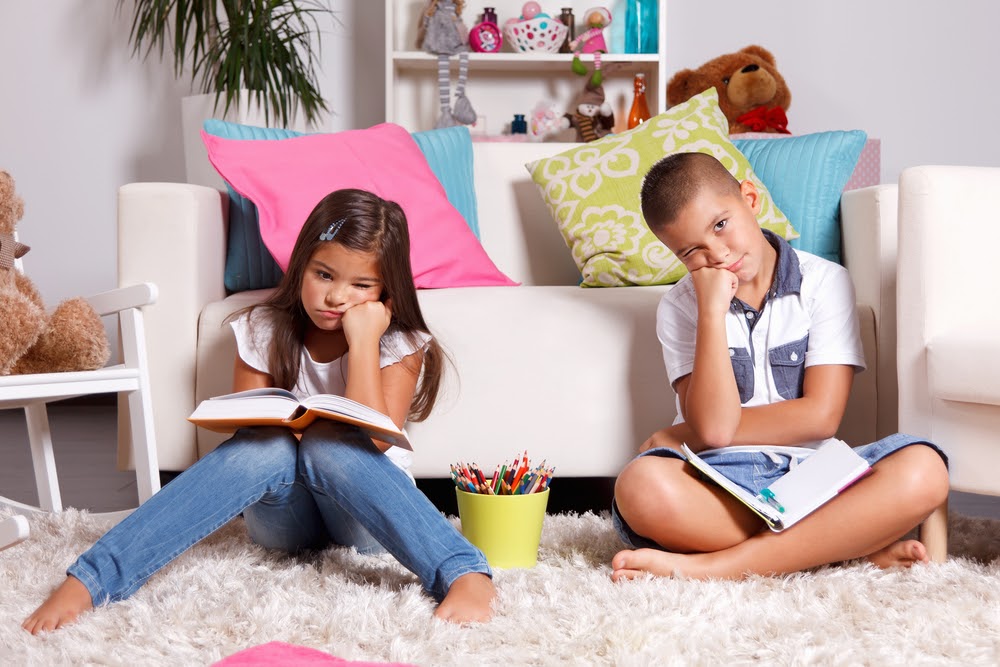
The day was going so well. Virtual learning was successful. The grades are good…great, actually. On the surface, there is a healthy, smart, successful kid. No worries, right? Then the evening hits, technology is banished and the nightly reading is scheduled to begin. This is when the fight ensues. “I HATE READING!” and, later, “Why do I have to read?”
The reality sets in, and parents ultimately find themselves admitting the terrible truth: “My child hates to read.” The fight may be even more frustrating to the parent if the child is a capable reader. Why is reading such a battle? Reading is fun! Parents who love books may be absolutely dumbfounded that the fight is even a fight.
There are many discussions about struggling readers and how to help them. Parents may be advised to talk to the teacher, take the child to the pediatrician and seek out evaluations and possibly referrals to specialists or even hire a tutor. When a child is a good reader, when that child tests well on standardized reading tests and excels in school, there may be few resources to help a parent when that child hates to pick up a book.
How can a parent get a child who hates reading excited about books? The answer isn’t so simple. The underlying problem of the disdain for reading, though, could be attached to other issues. One of the simplest reasons for loathing literacy may simply be that the child views reading as homework.
Remember the Book Report?
From the time most children enter kindergarten, reading nightly is an expectation. Typically, the assignment is 20 minutes. Some schools may encourage children to take quizzes about the books they read to help gauge understanding. What’s ultimately missing from the way parents—and maybe even teachers—now handle reading, however, may be the fun.
Decades ago, kids often were expected to read a specific number of fiction and nonfiction books as part of their instruction and reading curriculum. After completing the book, the child had to write a book report that summarized the book and maybe even included commentary on why the child liked or didn’t like the story. There was a sense of accountability with this type of instruction, but there also was a bit of open-ended leniency for children.
Many kids could read any book they wanted from the fiction/nonfiction categories (although, some schools might have had restrictions). Books were sometimes read in class, but, often, they were finished at home. While some schools still use book reports in their reading curriculum, others have dropped them.
Reading Expectations: Stop the Clock!
At home—in ye olden times of the ‘60s, 70s and ‘80s—there were no reading timers. No set minutes. There was simply the understanding that the child had to finish the book and write about it. That book report, while a homework assignment, provided an opportunity for kids to process what they read and think about the book. It opened up a bilateral discussion between the child and the teacher. The takeaway was simple: this is what I read and this is why I liked it.
Are discussions about what a child reads at home part of the reading journey at school? That may depend on the school district and the teacher. However, these earliest years may be crucial in framing whether a child learns to either love or loathe books. Clocking minutes could lend to love, but it also could lead to serious disdain.
How is a parent supposed to help a child with no reading struggles to learn to love to read? How can anyone teach that—a love of stories? Maybe the best solution is to simply stop the clock. Stop nagging nightly. This doesn’t mean kids shouldn’t meet their teacher’s expectations—they absolutely should and must. However, when the clock stops running and a child is engrossed in the book, the time limits won’t matter—they will be hit.

Tips to Help Kids Like Reading
What works for one child might not work with another, but there are a few tips for parents who want help transform their child’s hatred of reading into at least a mild like.
- Set page goals. Sit down with your child and create reasonable goals for their book. This allows them to see an endpoint. Kids who read 20 minutes each night without any direction but time may just read one or two pages and run out the clock.
- Let them pick their books. If a child isn’t interested in a book, why would they get excited to pick it up every night?
- Ask them questions about what they liked and what they didn’t. Embrace the old days of the book report. It’s ok if a child hates a book that they’ve read. Not every story or character appeals to everyone.
- Make sure children aren’t reading beyond their level. Talk to your child’s teacher if you need more info about individual reading levels.
- Read together as a family. Kids need to see parents reading. Make books and read a nightly part of everyone’s routine. Gather in the living room and quietly read.
Some kids—and adults—may simply not love books. However, the more a child reads, the better they may become at reading. Even if a child reads at grade-level and meets (or even exceeds) expectations, failure to read regularly could cause them to fall behind.
Help transform the reading routine into something that doesn’t resemble homework; stop the clock, and work on ways to help children embrace the books. Parents also need to put down their own devices, pick up a book, and read, too. Set the example, show kids that reading is a journey and help them discover that some of the greatest adventures exist within the binding of a book.

 Español
Español